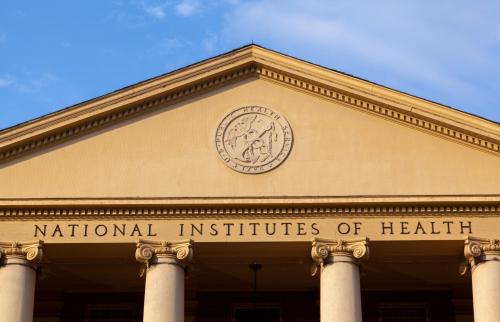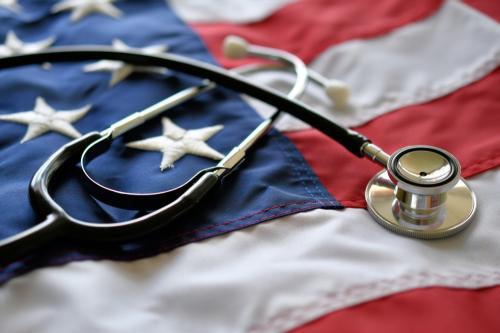No health care reform bill can succeed unless Congress finds the money to pay for it. The challenge is brutally simple. The up-front costs of extending coverage are certain and immediate.
The savings from delivery-system reform are speculative and slow. U.S. budget projections indicate explosive increases in government borrowing and rapid increases in debt-service costs, which could cause lenders to lose faith in the nation’s repayment capacity. Prospects are so bleak that not even the achievement of the worthy goals of health care reform justify increasing already perilous budget deficits.
Reform must therefore be paid for — with tax increases, spending cuts, or both. Congressional rules and the disciplined budget scoring of the Congressional Budget Office (CBO) make the challenge even more daunting. The draft House bill (HR 3200) exemplifies the problem. The CBO estimates the bill’s net cost at $1.042 trillion over 10 years — a gross cost of $1.182 trillion, less $140 billion net from taxes on and transfers to businesses to encourage private coverage (see table). Final estimates of the cost of this bill and others will vary in amount and detail. But any bill that reduces the number of uninsured people as much as HR 3200 does will have a similar cost.
Little money will be spent immediately. The CBO estimates that only 17% of the 10-year outlays would be spent in the first 5 years, less than would be spent in the 10th year alone. The reason? Setting up health insurance exchanges and the administrative framework to pay subsidies to tens of millions of households is hard and time-consuming. A rough rule of thumb is that annual spending in the 10th year after enactment will run about one fifth of the total cost for the first decade — $202 billion, in the case of HR 3200.
The Brookings Institution is committed to quality, independence, and impact.
We are supported by a diverse array of funders. In line with our values and policies, each Brookings publication represents the sole views of its author(s).



Commentary
Op-edWhy Paying for Health Care Reform Is Difficult and Essential: Numbers and Rules
August 5, 2009